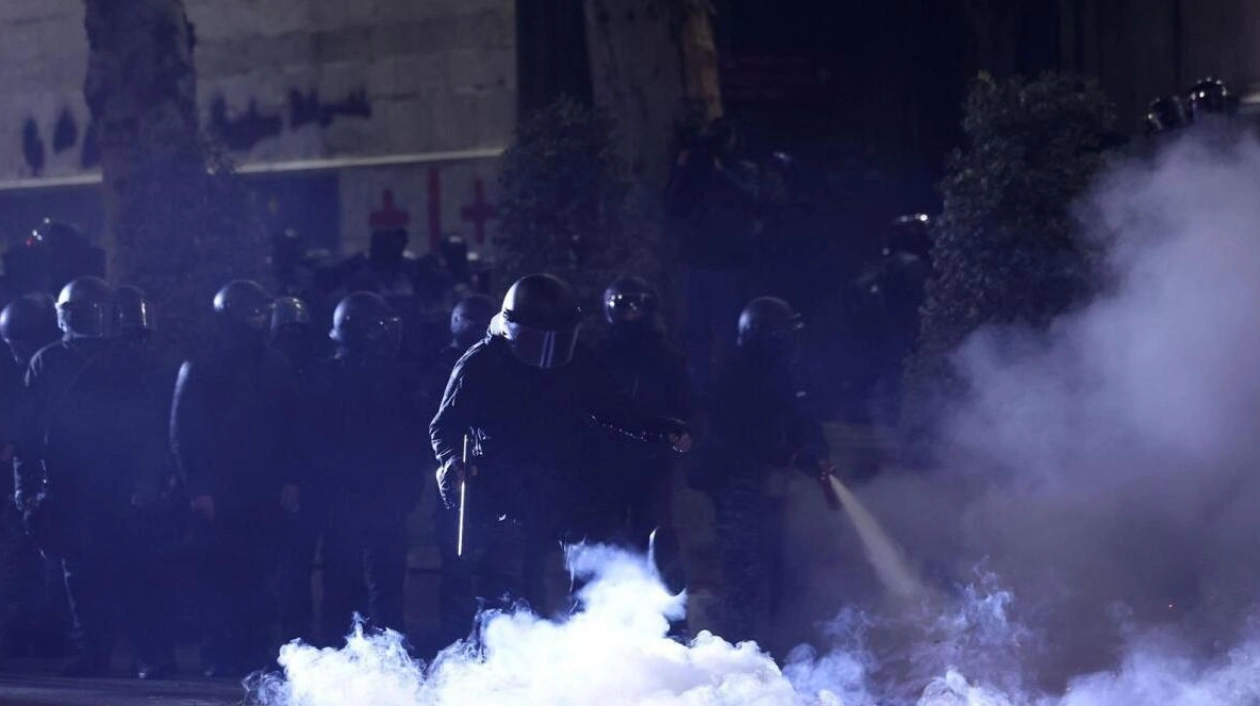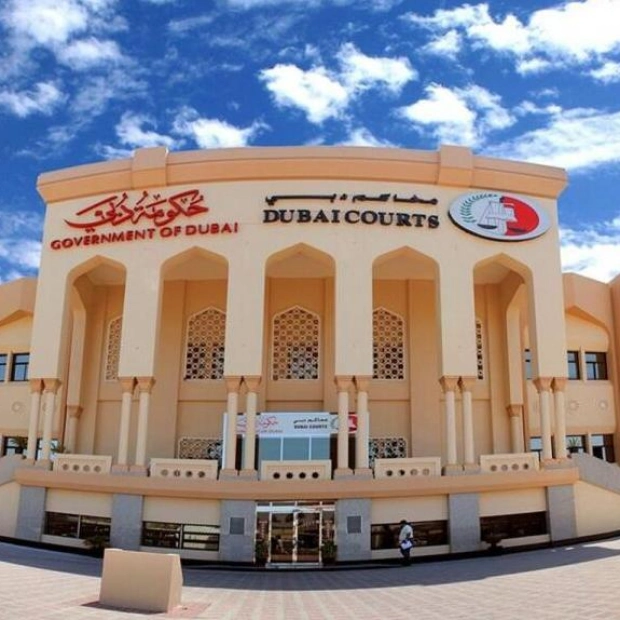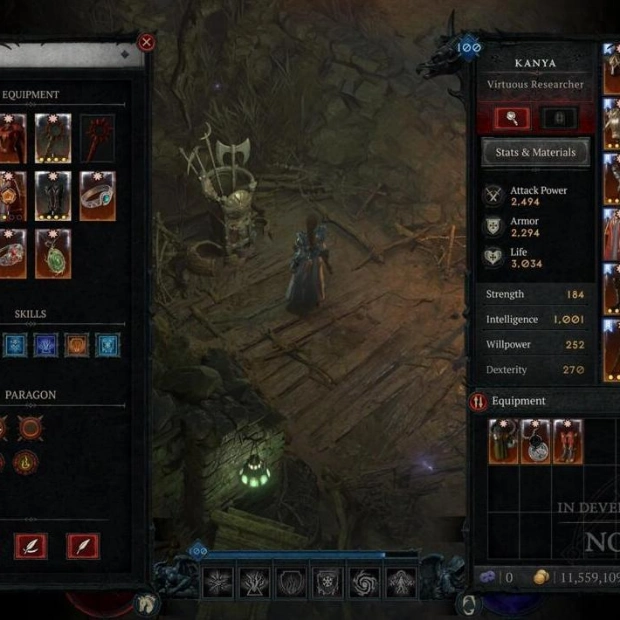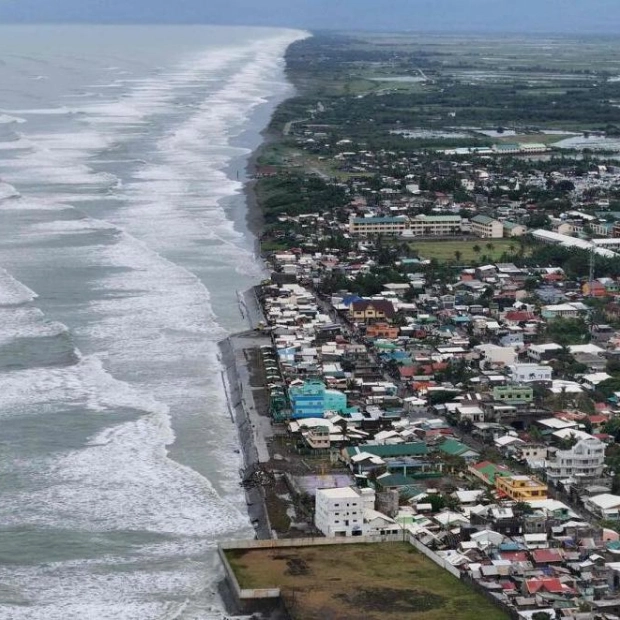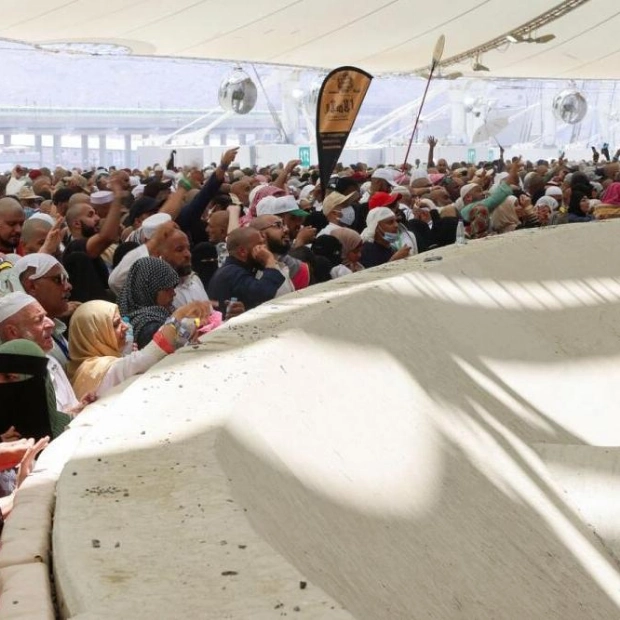Police in Georgia used tear gas and water cannon on Sunday during a fourth consecutive day of pro-EU protests, as tens of thousands of demonstrators took to the streets. The protests were sparked by the government's decision to postpone EU membership talks until 2028, a move that has deepened the political crisis in the country.
The unrest began after the ruling Georgian Dream party claimed victory in the October 26 parliamentary elections, which the opposition claimed were fraudulent. Prime Minister Irakli Kobakhidze's announcement on Thursday further fueled the protests, leading to widespread demonstrations in Tbilisi and other cities.
The opposition has boycotted the new parliament, and President Salome Zurabishvili has asked the constitutional court to annul the election result, calling the new legislature and government 'illegitimate'. Critics accuse Georgian Dream of steering the country away from the European Union and closer to Russia, a charge the party denies.
The interior ministry reported that around 150 demonstrators were arrested, while the Georgian Young Lawyers' Association put the number at 200. Police have used rubber bullets, tear gas, and water cannon to disperse the crowds, leading to international condemnation.
Protesters, waving European and Georgian flags, gathered outside parliament on Sunday evening. Some threw fireworks and stones at riot police, while others banged on the metal door blocking parliament's entrance. Despite police efforts, the crowds remained undeterred.
Late at night, riot police in full gear used tear gas and water cannon to disperse the rally. Protesters shouted 'Fuck Russia' and built barricades from dustbins, setting them on fire. Priests offered shelter to some protesters inside a nearby church.
The leader of the opposition United National Movement party, Levan Khabeishvili, claimed he was attacked by masked police officers but managed to escape with the help of protesters. Demonstrator Alexandre Diasamidze, a 32-year-old bartender, said, 'Georgian Dream... is a (pro-) Russian government, and they must go.'
Another protest took place outside the offices of Georgia's Public Broadcaster (GPB), which has been accused of acting as a propaganda tool for the ruling party. The broadcaster eventually conceded to the protesters' demand to grant Zurabishvili airtime.
Simultaneous protests occurred in cities across Georgia. Prime Minister Kobakhidze ruled out new parliamentary elections, stating that 'the formation of the new government based on the October 26 parliamentary elections has been completed.'
Earlier this week, the party nominated far-right former football international Mikheil Kavelashvili for the largely ceremonial post of president. However, Zurabishvili told AFP that she would not step down until the contested parliamentary elections are re-run.
Brussels has not recognized the outcome of the October elections and has demanded an investigation into 'serious electoral irregularities.' The European Parliament has called for a re-run and sanctions against top Georgian officials, including Kobakhidze.
Zurabishvili said she was 'the only legitimate institution in the country' and that 'as long as there are no new elections... my mandate continues.' Constitutional law experts have questioned the legitimacy of the new parliament, citing its approval of its own credentials in violation of a requirement to await a court ruling on Zurabishvili's bid to annul the election results.
Hundreds of public servants and judges issued joint statements protesting Kobakhidze's decision to postpone EU accession talks. More than 200 Georgian diplomats criticized the move as contradicting the constitution and leading the country 'into international isolation.'
The crackdown on protests has provoked international condemnation. Estonia, Latvia, and Lithuania agreed to impose sanctions 'against those who suppressed legitimate protests in Georgia.' US State Department spokesman Matthew Miller condemned 'excessive force' used on protesters.
Source link: https://www.khaleejtimes.com
